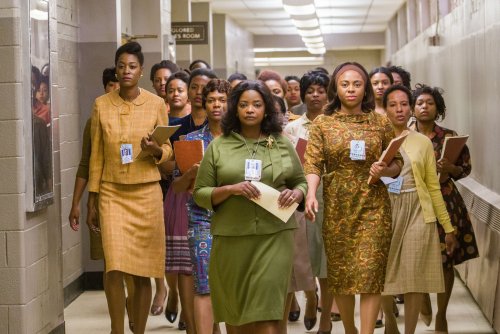The True Lesson of This Year’s Oscars Diversity: Equality Requires Focused, Intentional Effort
I don’t know movies as well as I know TV, so I’m probably being a bit naïve about this.
But I’ve been asked a lot over the past few days to talk about the increased diversity of Oscar nominees. And I think, more than anything, it reveals a simple truth that Hollywood’s film industry has managed to weasel its way out of until this cultural moment.
Success in diversity requires focused, intentional effort. Period.
Of course, as an editor of mine likes to say, correlation does not prove causation. So we can’t directly prove that all the crap the Oscar academy has taken for two years over the lack of diversity in its acting nominees actually pushed them into changing how they evaluated films and performances for nominations.
Perhaps the field which this year gave us Hidden Figures, Fences, Loving, Lion and Moonlight was better for showcasing people of color than the year we had Beasts of No Nation, Creed, Straight Outta Compton, Sicario and Samuel L. Jackson’s bravura turn in The Hateful Eight. Let the film geeks battle to the death on that one.
Still, for those of us who argued part of the problem was that worthy performers and films were simply overlooked, it was heartening to see the Academy of Motion Picture Arts and Sciences not only invite an additional 683 people to the organization last year, but publicize who those people are, so we could see the gender, racial and age diversity for ourselves. (It’s a peculiar kind of Hollywood-level irony to see Idris Elba invited to vote on the Oscars right after getting snubbed for a nomination for Beasts of No Nation, but whatever).
Is it a coincidence that right after that change, we saw the most nominations for black actors ever and a record 7 acting nominations for non-white actors? After two successive years with NO non-white acting nominees? Even for the correlation-isn’t-causation crowd, that seems a stretch.

Octavia Spencer, center, in Hidden Figures.
To me, Hidden Figures feels like the kind of black-centered, civil rights-era movie the Oscars once tipped a hat to but mostly overlooked (see, snubs for Lee Daniels’ The Butler and acting/directing snubs for Ava DuVernay’s Selma). To see it get three major nods as Best Picture, Best Supporting Actress and Best Adapted Screenplay feels like a certain sort of victory.
This is something Hollywood learned the hard way on the TV side awhile ago, though the lesson still needs refreshing time and again.
Only old heads might remember this, but back in 1999, the Big Four TV networks – ABC, CBS, NBC and Fox – advanced a slate of 26 new shows in which not a single non-white person was cast as a significant character for ANY show. We’re not talking starring roles; just regular castmembers. None.
The NAACP threatened a lawsuit, which produced loads of headlines and concern about FCC licenses and then we got vice presidents of diversity at the big broadcast networks. And then some networks, like Fox, made their diversity goals more specific and explicit. And now we have a TV landscape where Black-ish and Fresh Off Boat co-exists alongside a Latino-centered version of One Day at a Time, an edition of 24 starring a black male, TWO network TV dramas starring black women for the first time in history (ABC’s Scandal and How to Get Away with Murder) and fresh, new black-centered shows like FX’s Atlanta and HBO’s Insecure.
We even have a black Bachelorette. Finally.
In TV, we’re now seeing the same push for increased diversity applied to women, especially behind the camera. Both the cable channel FX and producer/director/showrunner Ryan Murphy have pushed to get about half of their directing jobs filled by women – and both Murphy and FX president John Landgraf have told me it wasn’t particularly hard to make it happen, once they made their goals clear inside and outside the company.
None of this means diversity problems in showbiz are solved. Too often, the word diversity is seen as code for “black,” which needs to stop. Hispanics remain the most underrepresented non-white group in television or film. Women still struggle with unfathomable inequities. All that has to stop. And more.
But this year’s Oscars may be an important lesson for a Hollywood system which has always been squeamish about conducting itself the way other businesses do in America – namely, looking at its diversity levels and then aggressively recruiting top people until quality hires who broaden their mix of employees are on staff.
Specific effort, applied fairly and sensibly, produces great results. And now that you know this, Hollywood, it’s time to really step up the effort.
